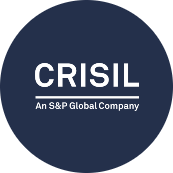
Metaverse Real Estate Development: Crafting the Future of Virtual Real Estate
The virtual real estate market has witnessed an exponential growth in recent years. According to a report by Precedence Research, the global virtual reality market size was evaluated at USD 23.92 billion in 2022 and is projected to hit around USD 187.28 billion by 2032. As more and more people tap into the metaverse and the demand for virtual reality increases, the metaverse real estate market is anticipated to grow even further.
At Antier, we offer mission-driven services to help businesses build and launch their metaverse real estate platforms. Our web 3.0 developers and subject matter experts work together to create immersive platforms fortified with institutional-grade security and transparency.
Features of our Metaverse Real Estate Platform
Every metaverse real estate platform that we develop is underpinned by features that facilitate virtual property
ownership and interaction within the digital realm.
Metaverse Real Estate Platform Development:
Investment Avenues for Participants
By building your metaverse real estate platform, you can provide your users with the following investment opportunities:
Connect with our subject matter experts to discuss your business use case.
Why choose us as your Metaverse Real Estate Development Company
By partnering with Antier, you can rely on a team of technical experts with real-world experience delivering end-to-end
consulting services.
























































